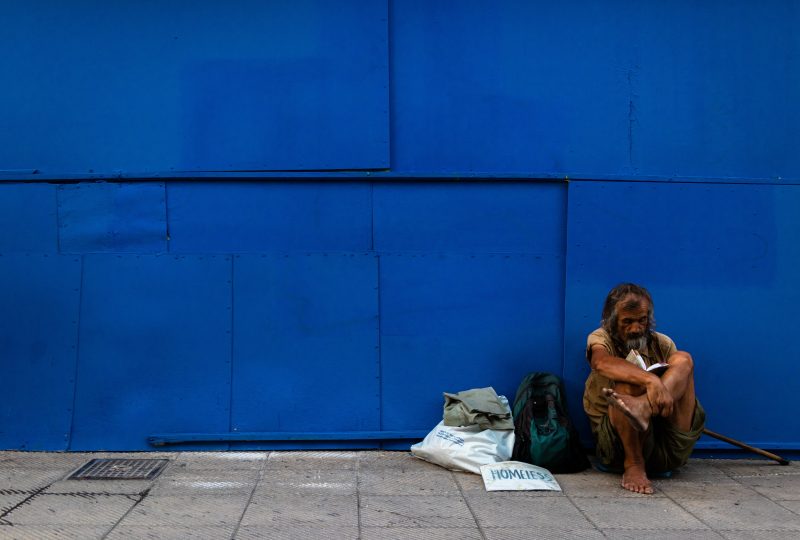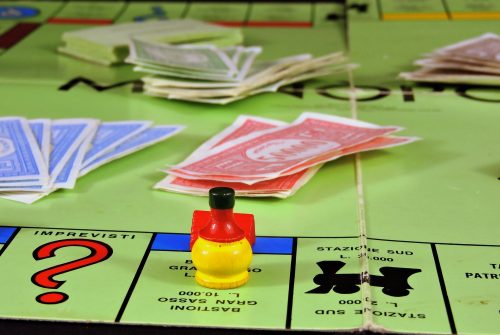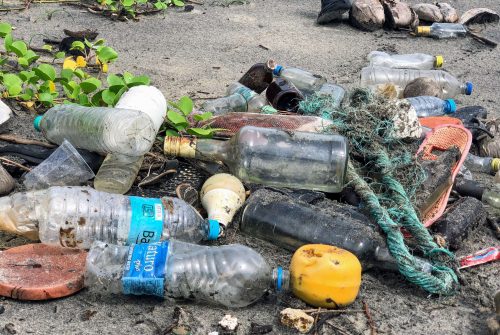How a true basic income could eradicate poverty from our country
22 November 2018 | Written by Andrea Dusi
In Italy, there is a lot of talk about basic income. But how does it really work? Can it be a tool for eradicating poverty?

Premise
The content of this paper is only and exclusively my point of view and does not want to be a political judgment of this government, but only the historical, statistical and factual analysis on a subject that is close to my heart: if and how the problem of poverty in Italy can be solved through the so-called “Basic Income”.
What follows, therefore, is only my attempt to take a concrete and non-partisan approach to avoiding that even on such an explosive theme (especially in the near future) one will always remain on the surface, perched on superficial positions.
Goal
The goal is to answer the following questions:
– Can poverty be defeated?
– The system of a Basic Income, BI, for the poorest can be the tool to do it?
– Is the BI sustainable for the economy of our country?
I will also give my point of view on how the BI is going to be applied in Italy.
Do we really want to eradicate poverty from our country?
The basic question that we, as individuals and as a society, must ask ourselves is the following: “Do we really want to eradicate poverty from our country?”
It is not, as it may seem, a rhetorical question.
In fact, we are inclined to think (just read the comments from those who are against the measure of the Italian Government on the Basic Income but, good news, it is a widespread phenomenon around the world when addressing this issue) that if the poor will have access to money, they are going to use it to buy alcohol and cigarettes instead of books or healthy food, because we are convinced that the poor are not able to manage “sudden” economic resources. “There is a reason if they are poor, isn’t there”?
Perhaps this is linked to the strongly Catholic matrix of our country, so we are still slaves of the biblical concept “… And indeed when we were with you, we commanded this: that if anyone does not want to work, he must not eat.” (2 Thessalonians 3: 10).
“You are poor because you do not work and so it is your fault if you are in that situation”. “And if you want money from the state, you have to get into assistance programs that allow you to have a job or do socially useful jobs.”
In the second part of the last century, in fact, there was a shift from the concept of “welfare” (you have the right to feel good) to the concept of “workfare” (you have the right to feel good if you work or are in a path of job placement).
Initially a Universal Basic Income was theorized by Friederich Hayek and Milton Friedman, included in the Universal Declaration of Human Rights of 1948. In Article 25 it is still written “Everyone has the right to a standard of living sufficient to guarantee the health and well-being of one’s own family, with particular regard to food, clothing, housing, medical care and necessary social services; and has the right to security in the event of unemployment, sickness, invalidity, widowhood, old age or in any other case of loss of means of subsistence due to circumstances beyond his control.”
Today, however, we have lost sight of this concept and the economic support to those who need it is always “conditioned” to the concept of work and “mediated” by associations and organizations that have the task of “managing” state contributions to the poor.
In fact, in the belief that a poor person cannot receive money from the state “unconditionally” because otherwise they will work less and in fact waste this money. And this belief, which over time had also convinced my way of thinking, is not only lacking in scientific evidence, but also the opposite is true. As I will explain in the continuation of the reading.
To date, the systems created in Western countries to defeat poverty do not work. It is not just an Italian problem: if we take into consideration one of the world centers of innovation, San Francisco, we realize that the magnitude of the problem is enormous: one of the most striking aspects of that city are in fact the incredibly high number of homeless people.
And that’s why I ask the question again: do we really want to defeat poverty in our society? Because in fact the systems we are using today do not work and if we want to solve the problem we have to act differently.
Basic income
Is it possible to eradicate poverty from a country and the world through the Unconditional Basic Income (money given without asking for anything in return, such as registration for job listings or other) or is it a utopia?
Given that I believe in the importance of utopias as guidelines for thinking and working at the best of possible futures, the sociologist Albert Hirschman asserts that utopias are often attacked in 3 directions:
– they are futile, meaning they are not possible
– they are dangerous, they involve too many risks
– they are perverse, it could degenerate into a dystopia
But still Hirschman says that in the moment when utopia becomes reality, in a very short time, this becomes a habit, something that one wonders why it was not born before.
If we look back in our history, there are many utopias that have followed this path. The very concept of democracy has been opposed by enlightened minds, from the philosopher Plato to the statesman Edmun Burke. Who, about the concept of democracy, believed that it was:
– futile, because the “people” are too stupid to manage it;
– dangerous, since the majority rule would have entailed risky choices;
– perverse, because the general interest would soon be corrupted by the interest of some general or powerful man.
On closer inspection, even the income of citizenship (intended only for those who need it) as a tool to eradicate poverty, is now seen in the Western world as a utopia because, it is supported, it is:
– futile, because we can not afford it;
– dangerous, because people would leave their jobs and money would be used to buy cigarettes and abuse alcohol;
– perverse, because a minority would end up working even harder to support a majority that “does not do anything anymore”.
Let’s try to think about these three statements.
A) We cannot afford it
For the first time in history we are rich enough to allow an “Unconditional” Basic Income to those who need it, eliminating in the context:
– all the superfluous bureaucracy and systems to support the neediest, which often accounts for more than 50% of the value of the aid;
– the obligation for recipients to return to the world of work, almost always to do repetitive and low productivity jobs, which in a few years will disappear anyway.
Let’s take the United States. To completely eradicate poverty with the income of citizenship would need about 175 billion dollars, just under 1% of US GDP [1]. It is rhetorical to write that it is about a quarter of the American military budget, even if it is so, because a state nowadays still needs an army. But if we think that the cost of the wars in Afghanistan and Iraq has been, according to a Harvard study, estimated between 4 and 6 trillion dollars [2], I think we should think about it.
In general, however, some studies show how to eradicate poverty with a system of unconditional basic income for the poorest people has economic benefits that outweigh the costs, as well as having an impact on the reduction of crimes, the use of the health system and the improvement of school results.[3]
If we took, for example, England, the cost to eradicate child poverty would be about £29 billion a year [4] but, according to this research, the results would largely repay the costs.
Moreover, every time the system was used, it has brought very positive results: as in Utah, in 2005, when a program was launched to give free houses to all the homeless, with the aim of removing them from the street.
The project started by offering the house to the 17 most desperate cases and gradually expanded, without looking at the “type” of the poor that was faced (offering a home even to those who had a criminal record): in Utah, today, to have a home has become a right. With extraordinary results in this case: 74% reduction of homeless people with a drop in costs in social services, police, justice at 16.670 dollars, compared to a cost to provide a home and a professional consultancy estimated at $11,000.
[5]
B) People will leave their workplace / decide not to work
There is an embarrassing evidence now that this is not the case: most people want and will continue to work, regardless of whether or not they have the financial need to do so. This is demonstrated both by the experiments of granting the Basic Income already implemented, as expressed previously in the article, and by the winners of large sums of money.
[6]
Of course, no one will want to do many of the hardest and low-productivity jobs, the ones that will be replaced by automation anyway. Why would I do a “bullshit job”, if I am not forced?
Perhaps it is the opportunity that everyone can realize themselves following their own inclinations!
The medical journal Lancet also highlighted how the poor who receive money without conditions work harder.[7]
An interesting example, even if it is not the only one, is the GiveDirectly organization, a company created by Michael Faye that allows anyone to donate money to those in extreme need. GiveDirectly does not offer the poor a fish, nor teaches them how to fish. It provides money, believing that the people themselves are the main experts of what they need to survive.
According to a study by the Massachusetts Institute of Technology, the money provided by GiveDirectly allows a constant increase in recipient’s income (up to 38% compared to the time before the donation), improves the percentage of people who come into possession of a house and/or of livestock (up to 58% more), while reducing the number of days when children are hungry by 42% [8]. For this reason, GiveDirectly delivers to the recipient 93% of the donation, withholding 7%.
I recommend reading the book “Just give money to the poor” in 2010, where the University of Manchester brought an almost infinite number of examples in which to give money “free” without conditions has worked well.
From Namibia to Malawi, from Brazil to India from Mexico to South Africa: already in 2010 there were more than 110 million families (NOT people, families) recipients of these programs in over 45 countries.
In 2008, the Ugandan government decided to distribute around $400 to 12,000 people between 16 and 35 years of age. The money was offered under one condition: provide a business plan. Five years later the effects were incredible.
In general, the money was used to improve one’s education or business activities with the result that the income of the beneficiaries is increased by 50% and the possibility of being hired by 60%.[9]
Similar results were also obtained with another program, again in Uganda, thanks to which $150 were distributed to more than 1,800 poor women in the northern part of the country. In this case the income grew by almost 100%.[10]
The results presented by the University of Manchester are clear and show that the poor people who have access to unconditional income make it an extraordinary use, with the following benefits:
- Families use money optimally
- Poverty decreases
- There are long-term positive effects on income, health and increased tax revenue
- This type of programs costs less than the alternatives to solve the problem.
C) Is it a perverse system, because of which a few workers will do all the work for all the slackers?
Probably, as Rutger Bregman states in his book “Utopia for Realistics”, the perverse system is the current system of our country, made up of controllers and controlled, bureaucratic and often even not transparent. Those who today find themselves in a situation of real need live moments of deep frustration, of continuous humiliation, by a system that offers support only if you are inserted in a path to return.
We must start from a profound and important consideration: being poor means not having money. It does not mean being stupid.
Giving money to the poor allows them to buy things they need: it is proven that they are not used to buy alcohol and cigarettes. Indeed, a study by the World Bank has shown that in 82% of all cases studied in Africa, Latin America and Asia, the consumption of alcohol and tobacco has actually decreased. [11]
An experiment in Liberia brought $200 a month to the poor with problems of alcoholism, crime, and other issues. After 3 years, these people used the money to study, get dressed, buy medicines and food. [12]
A fundamental aspect for making Basic Income work is to provide money to those in need in an “unconditional” way, without “obligations” or “restrictions” or, as the Americans say, with “no strings attached”.
In addition to being effective for solving the problem of poverty, experiments show that providing “unconditional” income to those in need also allows to:
– reduce crime
– reduce child mortality
– reduce the incidence of pregnancies among adolescents
– reduces absenteeism from school
– improve gender equality. [13]
In 1973, 83 million US dollars were allocated to a project to provide all 13,000 inhabitants of Dauphin, a city in Canada, with a basic income to ensure that no one was poor. So 1000 families, about 30% of the total, began to receive a monthly amount, without restrictions, for a figure that, at the current exchange rate, would be about $19,000 a year. The experiment, done with the presence of many researchers (economists, who monitored if the inhabitants would work less, sociologists, to understand the effects on the lives of families and anthropologists) led to amazing results despite the fears of politicians.
The students worked harder and faster and hospital admissions decreased by 8.5%, with a positive financial impact for the whole community.
Furthermore, there was a decline in domestic violence and mental health issues. In short, the city was better. [14]
Dauphin was one of five experiments carried out in North America, the other 4 were all conducted in the United States.
In 1964 in the USA, in fact, President Lyndon Johnson legislated what is known today as the “War on Poverty” [15] (although it was not the official name of the law). Of course, it was necessary to do tests first and to do tens of millions of dollars were budgeted to provide approximately 8500 Americans in New Jersey, Pennsylvania, Iowa, North Carolina, Indiana, Seattle, and Denver with a guaranteed minimum income, with goal of answering 3 main questions:
1) Would people work less if they had a guaranteed income?
2) The program will be too expensive for the Government compared to the expected benefits?
3) The program will demonstrate politically impossible to manage?
The results of the experiment led to the following answers
1) No
2) No
3) Yes
There was no statistically significant decline in the number of hours worked, so even in this case one can not speak of an increase in laziness, as many claimed. Initially there seemed to have been a reduction of about 9% in working hours by 20-year-olds and mothers with young children [16], but soon they realized that that was not the case. [17]
And in 1968 five famous economists (John Kenneth Galbraith, Harold Watts, James Tomin, Paul Samuelson, and Robert Lampman) wrote a letter to the congress, then countersigned by another 1200 economists and published in New York Time, where they pushed in the direction of granting a guaranteed minimum income, arguing that it would have been economically justified and beneficial. [18] The nationwide project, which President Nixon was close to starting in 1978, did not take off only for political reasons, linked to a statistical error according to which he thought that in the Seattle experiment the guaranteed income had increased divorces by 50%. [19]
Too bad, because if there was a moment in recent history when the United States came close to defeating poverty, it was with Nixon. And who knows how the present would have changed.
On the Basic Income expected in Italy
Obviously, I cannot fail to comment on the Basic Income as set by the current Government.
I do this by following a non-ideological or even partisan reasoning. As I wrote in the introduction, my goal is to understand if this system can be useful to solve the problem of poverty in my country. Nothing else.
In light of the analyzes carried out, I am convinced that providing unconditional money and without constraints to those in need is the most powerful and extraordinary form, as well as less expensive, to solve the problem of poverty in Italy. And I think it is not only economically sustainable, but it could have positive effects, even in Italy.
Second premise. In front of my desk there is a sign that says “Done is better than perfect”.
There are three considerations that I would like to make.
- In the setting given by the current Government, the income of citizenship is provided with some conditions (mandatory retraining/socially useful jobs/accepting at least 1 work out of 3 proposed). I believe that this aspect, which I consider crucial, is linked to the need to respond to the dominant thought, as expressed above, on this issue: we have moved from a welfare system to a workfare system and therefore the State can offer money only if those who benefit from it fit into a path that leads them to work. I think paradoxically it is a mistake: these people will be included in jobs that within a few years will be replaced by automation and the measure will not have the benefits it could have. And the basic income systems that work best are statistically speaking the unconditioned ones.
- If I am not wrong, the money will be provided to buy only certain products/services. In the belief that the poor otherwise, cliché already seen and wrong, would buy cigarettes and alcohol. And maybe they would gamble. But all the cases dealt with say that it is not so. The poor are the main experts to understand what they need (this too widely demonstrated).
- I would start with an experimentation (for example for categories of people or age group), and then extend it more broadly. In this way we would have had the data available to demonstrate, or not, the validity of the actions taken and then eventually lead to a progressive extension, which would have allowed to enlarge the project to the rest of the population in need. I understand, however, that the times of Italian politics do not allow it.
In fact, I fear that the combination of these aspects could have a significant impact on the correct adoption of the Basic Income in Italy.
Conclusions
Much of our nation’s current wealth depends on the work done by our ancestors. Only a small part depends on us, for what we do while it is up to us to make humanity progress. But if the great part of the wealth has been generated by those who preceded us, who are we not to allow everyone to benefit, at least in part?
Moreover, if history teaches that the Unconditional Basic Income for the needy works and it’s economically sustainable (indeed!), why not work for the best possible system instead of dividing on positions of principle?
We are facing major changes and the choices we make today will profoundly affect the impacts that technological, climate and demographic changes will have in our society. It would be desirable to have a dialogue and a confrontation, as much as possible inclusive and extended, to work together with the best of possible futures.
This is why I invite anyone who wants to contribute to the discussion on this issue to do so in a purposeful and constructive way.
Sources
[1] https://www.demos.org/blog/10/3/13/how-universal-basic-income-would-affect-poverty
[2] https://www.hks.harvard.edu/publications/financial-legacy-iraq-and-afghanistan-how-wartime-spending-decisions-will-constrain
[3] https://opinionator.blogs.nytimes.com/2014/01/18/what-happens-when-the-poor-receive-a-stipend/
[4] http://www.cpag.org.uk/content/estimate-cost-child-poverty-2013
[5] http://articles.orlandosentinel.com/2014-05-21/news/os-cost-of-homelessness-orlando-20140521_1_homeless-individuals-central-florida-commission-tulsa e https://thinkprogress.org/colorado-proves-housing-the-homeless-is-cheaper-than-leaving-them-on-the-streets-ff9b113c101c/
[6] https://link.springer.com/article/10.1007/BF01367438
[7] The Lancet Editorial, “Cash Transfers for Children. Investing into the future” Lancet, June 27, 2009
[8] Johannes Haushofery and Jeremy Shapiroz, “Policy Brief: Impacts of Unconditional Cash Transfers”
[9] Chistopher Blattman, Nathan Fiala, and Sebastian Martinez, “Generating Skilled Self-Employment in Developing Countries: Experimental Evidence from Uganda”, Quarterly Journal of Economics (November 14, 2013).
[10] Chistopher Blattman, Nathan Fiala, and Sebastian Martinez, “The Returns to Cash and Microenterprise Support Among the Ultra-Poor: a Field Experiment”
[11] David Evans e Anna Popova, “Cash transfers and temptation goods. A review of global evidence”, World Bank Policy Research Working Papers (May 2014)
[12] Blattman and Niehaus, “Show Them the money”
[13] In South Africa: Jorge Aguero e Michael Carter, “The Impact of Unconditional Cash Transfers on Nutrition: The South African Child Support Grant”, University of Cape Town (Agoust 2006). In Malawi: W.K. Luseno, “A multilevel analysis of the effect of Malawi’s Social Cash Transfer pilot Scheme on schoolage children’s health,” Health Policy Plan (May 2003), Sarah Baird, “The short-term impacts of a schooling conditional cash transfer program on the sexual behavior of Young Women. Charles Kenny, “For fighting poverty, cash is surprisingly effective,” Bloomber Businessweek (June 3, 2013)
[14] Zi-Ann Lum, “A canadian city once eliminated poverty and nearly everyone forgot about it”, Huffington Post / Lyndor Reynolds, “Dauphin’s Great Experiment”, March 12, 2009 Winnipeg Free Press / Vivian Belik, “A Town Without Poverty?” Dominion (September 5, 2011) / Evelyn Forget, “The town with no poverty”, University of Manitoba (February 2011) / Allan Sheahen, “Basic Income Guarantee. Your right to economic security” (2012).
[15] https://en.wikipedia.org/wiki/War_on_Poverty
[16] Allan Sheahen, “Basic Income Guarantee. Your Right to Economic Security (2012)
[17] Dylan Matthews, “A Guaranteed Income for Every American Would Eliminate Poerty – and It wouldn’t destroy the economy”, Vox.com (July 23, 2014)
[18] https://www.nytimes.com/1968/05/28/archives/economists-urge-assured-income-1000-in-universities-urge-payment.html
[19] https://www.jstor.org/stable/2780516?seq=1#page_scan_tab_contents





